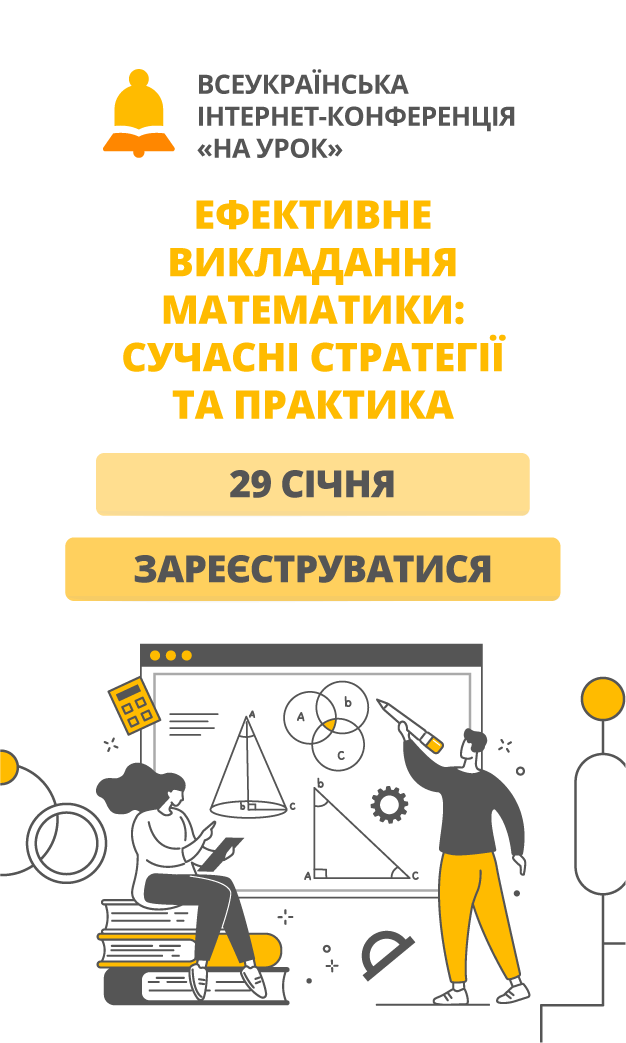Конспект уроку "Погодні явища"

« ПОГОДНІ ЯВИЩА»
Тема: «Погодні явища»
Мета:
Практична: практикувати активний словник теми, ввести нові лексичні одиниці, вчити їх правильно артикулювати, розвивати вміння учнів логічно та послідовно викладати власні думки іноземною мовою.
Освітня: тренувати навички роботи з текстом, поглибити знання учнів про погоду, розвивати самостійне мислення, ініціативність, бажання до пізнання нового.
Розвиваюча: розвивати автентичний слух, пам 'ять, увагу, логічне мислення, уяву, творчість, навички вимови, читання, розвивати зв 'язне діалогічне і монологічне мовлення.
Виховна: виховувати позитивне ставлення до вивчення англійської мови.
Обладнання: картки iз завданнями, картинки із зображенням погоди, відеозапис пісні про погоду, відеозапис зарядки, робочі зошити.
Хід уроку
I. Підготовка до сприйняття іншомовного матеріалу.
- Greeting. Привітання.
T. Good morning, dear children. How are you today? Are you in good mood? So let’s start our lesson.
- Conversation. Бесіда з черговим.
T. Who is on duty today?
Who is absent today?
- Aim. Повідомлення теми і мети.
T. Are you creative and active to start our lesson? I am sure you are. Today I want to suggest a very important topic. We are going to read and talk about weather phenomena. By the end of the lesson we'll revise the vocabulary and will be able to use it in your speech. Besides you'll act the dialogues and do some interesting tasks.
- Warming-up. Уведення в іншомовну атмосферу.
T. Let’s speak about nature and weather.
What day is it today?
What season is it now?
What are spring months?
What is the weather like today?
Is it a sunny day today?
Is the snow thawing?
Is it foggy today?
Is it windy today?
Is it dull?
What colour is the sky?
Is it thundering and lighting now?
Can you see green leaves in the trees?
T. Well, children I’m going to ask you some more questions about weather and
If you like such weather, show happy faces, if you don’t show sad faces and neutral
if it doesn’t matter to you. And so
Do you like sunny weather?
Do you like cloudy days?
Do you like windy weather?
Do you like rainy days?
Do you like today’s weather?
II. Основна частина уроку.
- Presenting vocabulary. Введення нової лексики.
T. Look at these pictures
AIR
CLOUD
STORM
LIGHTNING
THUNDER
THUNDERSTORM
DROUGHT
HURRICANE
- Listening skill. Аудіювання.
- Pre – Listening activity.
T. First look at the title. How do you think:
-What is this text about?
-What are we going to learn from this text?
Let’s pronounce the words from the text: to float, to jump, to move, to breathe, to warm, noise, electricity.
- While – Listening activity.
Weather phenomena
All around the earth is air. The sun shines through it, the clouds float in it. We can’t see the air but we know that it is around us. People, animals and plants breathe air.
When the air moves quickly, it is a wind. We can say that a wind is a moving air. When the wind blows very hard and it rains there is a storm. A very strong wind is a hurricane.
Can you explain what lightning is? It is electricity in the air. This electricity jumps from cloud to cloud or from a cloud to the ground. Lightning warms the air through which it goes. This makes the loud noise. We call this noise thunder. When there is thunder, lightning, rain and sometimes wind together, a thunderstorm begins.
- Post – Listening Activity. Work in pairs.
T. Answer the questions
- Is there water or air all around the earth?
- Where do the clouds float?
- What do people, animals and plants breathe?
- What is a wind?
- What happens when the wind blows very hard?
- What does electricity do in the air?
- Is thunder a moving air or the loud noise?
- Is there any rain when we have a thunderstorm?
- Vocabulary Practice. Закріплення ЛО.
T. Match two parts of the sentence
|
We can’t see the air but |
it is a wind |
|
People, animals and plants |
there is a storm |
|
When the air moves quickly |
thunder |
|
Lightning is |
breathe the air |
|
This electricity jumps |
from cloud to cloud |
|
Lightning warms |
the air through which it goes |
|
We call this noise |
electricity in the air |
|
When the wind blows very hard |
we know that it is around us |
- Relaxation.
T. Guess the riddles:
- What is white?
What can you see
When skies are bright?
What can float?
What brings rain?
What may be higher
Than a bird or plane?
Say it out loud: (Cloud)
- Red and green and delicate blue,
Orange, yellow, and violet, too.
Indigo’s there,
a deep, dark, hue.
I see, but can’t touch it, and
neither can you!
What is it? (Rainbow)
- I am purple, yellow, red,
and green.
The King cannot reach me and neither can the Queen.
I show my colours after the rain,
And only when the sun comes out again. (Rainbow)
- What falls but never rises? (Rain)
- What is without hands and without feet, without a head or a body, but can open a door? (Wind)
- What is white and falls on the top of the house/roof? (Snow)
- Water frowns (хмурится) at it.
Trees shake their heads at it.
Flowers bow from it.
Clouds run away from it. (Wind)
- What is it that can catch me in the garden and make me wet, but cannot reach me when I am at home? (Rain)
- All about, but cannot be seen,
Can be captured, cannot be held,
No throat, but can be heard. (Wind)
- Writing skill. Практика письма.
T. Put the words in the right order
1. is / wind / A / a / air / moving
2. The / float / clouds / the / air / in
3. All / air / there / earth / is / the / around
4. air / breathe / People / plants / , / animals / and
5. Lightning / air / electricity / is / in / the
6. air / warms / Lightning / the
7. This / noise / makes / the / loud
8. call / We / thunder / this / noise
T. Cross out the odd word (words)
A STORM: wind + rain + frost
A THUNDERSTORM: thunder + lightning + sunshine + rain
A HURRICANE: very strong wind + snow + rainbow
T. Complete the sentences. Use words from the box.
- You see … before you hear thunder.
- You must wear a raincoat in a … .
- When the air moves very … it is a … .
- A wind is a moving ground. It is a moving … .
- The sun doesn’t shine in a … .
- Rain comes from the … .
- We can’t see … , but we know that it is around us.
BOX: THE AIR, STORM, LIGHTNING, QUICKLY, WIND, CLOUDS, THUNDERSTORM
- Do the puzzle
T: Complete the sentences, hut new words into the square and read a proverb with a new word.
- The opposite of dry is … .
- Rain comes from the … .
- The warmest season is … .
- Less warm is … .
- Less cold is … .
- The season before summer is … .
- Ice is a … water.
- The opposite of high is … .
|
1. |
w |
e |
t |
|
|
|
|
2. |
c |
l |
o |
u |
d |
s |
|
3. |
s |
u |
m |
m |
e |
r |
|
4. |
c |
o |
o |
l |
e |
r |
|
5. |
w |
a |
r |
m |
e |
r |
|
6. |
s |
p |
r |
i |
n |
g |
|
7. |
f |
r |
o |
z |
e |
n |
|
8. |
l |
o |
w |
|
|
|
T……w is another day
III. Заключна частина уроку.
- Assessment. Оцінювання.
- Homework. Домашнє завдання.
T. Write down your homework for the next lesson.
- Translate the sentences into English:
- Навколо землі є повітря.
- Люди, тварини і рослини дихають повітрям.
- Блискавка – це електрика в повітрі.
- Блискавка робить повітря, по якому вона рухається, теплим.
- Гроза – це грім, блискавка, дощ і вітер разом.
- Learn new words to the topic.
- Summary. Підведення підсумків уроку.
- Did you like our today’s lesson?
- What kind of activity do you like most of all?
- What new have you learnt at the lesson?


про публікацію авторської розробки
Додати розробку
